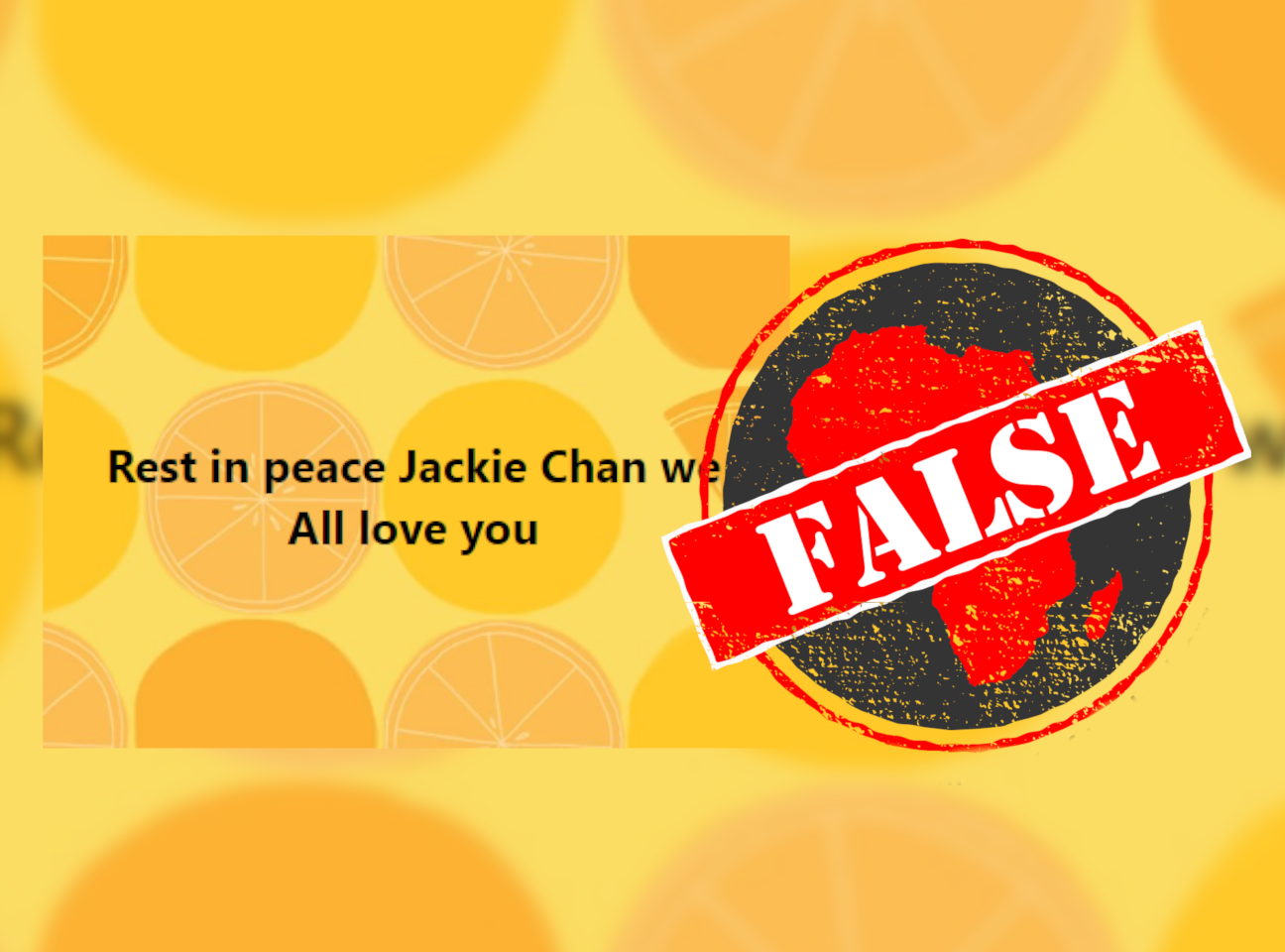Hong Kong and Hollywood action movie star Jackie Chang has died, according to a claim doing the rounds on Facebook in South Africa and elsewhere.
“Rest in peace Jackie Chan we all love you,” reads one post, dated 27 April 2022.
Another, from 26 April, reads: “Rip Jackie Chan😭😭💔😭😭😭❤️💔💔 They gave us The karate kid😭❤️”.
Celebrity death hoaxes are harmful to friends, family, and fans – and the celebrity. They also sow distrust in social media and have been used as clickbait and phishing scams.
Has Chan died? We investigated.

Social media killed off Chan in 2011 and 2015
There’s no evidence for the claim. Chan’s death would have been widely reported by media outlets across the world. There’s no news of it.
Nor has it been announced on Chan’s verified Twitter, Facebook and Instagram pages.
And Chan was posting on social media after the hoax messages about his death started circulating.
Africa Check has debunked several celebrity death hoaxes, with some celebrities dying more than once.
This is not the first time Chan has reportedly died. The actor was first pronounced dead by Twitter users in March 2011 and again in August of that year.
But Chan set the record straight in a March 2011 post on his Facebook page.
Chan was then reported dead in 2015. Again the actor took to Facebook to dismiss the hoax.
Republish our content for free
For publishers: what to do if your post is rated false
A fact-checker has rated your Facebook or Instagram post as “false”, “altered”, “partly false” or “missing context”. This could have serious consequences. What do you do?
Click on our guide for the steps you should follow.
Publishers guideAfrica Check teams up with Facebook
Africa Check is a partner in Meta's third-party fact-checking programme to help stop the spread of false information on social media.
The content we rate as “false” will be downgraded on Facebook and Instagram. This means fewer people will see it.
You can also help identify false information on Facebook. This guide explains how.


Add new comment